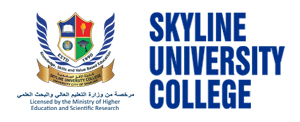Astrometeorology
Astrometeorology is the science of forecasting weather by assessing the movement and position of celestial bodies. Astrometeorologists apply their knowledge of the relationship between weather and the sun, moon, stars etc. to make predictions about weather.
Astrochemistry
Astrochemistry combines the principles of astronomy and chemistry, to study the formation, interaction and destruction of chemical elements that are found in space. Their study encompasses elements at a scale much larger than the solar system.
Astrometry
Astrometry is concerned with the tracking of the position and movement of celestial bodies. Astrometrists take precise measurements that allow them to trace the coordinates of various stars, planets and other bodies.
Astrobiology
Astrobiology is the study of other life forms beyond Earth. Astrobiologists apply their knowledge of biology and planetary systems, to understand the origin and nature of extra-terrestrial life in the universe.
| Stream | Graduation | After Graduation | After Post Graduation | |
|---|---|---|---|---|
|
Path 1
|
Clear Class XII in Science stream | Pursue B.Sc. Physics/ Computer Science for 3 years | Pursue M.Sc. Physics/ Astronomy/Astrophysics for 2 years | Pursue Joint Astronomy Programme and Ph.D. |
|
Path 2
|
Clear Class XII in Science Stream | Pursue B.Tech in Computer Science for 4 years | Pursue M.Sc. Physics/ M.Tech. Astronomy/Astrophysics for 2 years | Pursue Joint Astronomy Programme and Ph.D. |
Important Facts
- Most colleges have eligibility criteria of minimum 50% aggregate marks in Class XII with Physics as a main Subject.
- M.Sc. Physics, Astronomy and Astrophysics are available as courses only in select colleges.
- Physics and Mathematics are required as main Subjects in Class XII and Under graduation.
- Most of the institutes for post-graduation require bachelors in Physics and related subjects.
[/td_block_text_with_title][td_block_text_with_title custom_title=”WORK DESCRIPTION” header_color=”#dd3333″ separator=”” tdc_css=””]
- Calculate orbits, and determine sizes, shapes, brightness, and motions of different celestial bodies
- Team up with other astronomers to carry out research on projects
- Develop theories based on personal observations of the space, or on observations and theories of other astronomers
- Measure radio, infrared, gamma, and x-ray emissions from extraterrestrial sources
- Present research findings at scientific conferences and in papers written for publishing in scientific journals
- Plan and conduct scientific experiments and studies to test theories and discover properties of matter and energy
- Do complex mathematical calculations to analyze physical and astronomical data, such as data that may indicate the existence of planets in distant solar systems
- Design new scientific equipments, such as telescopes and lasers
[/td_block_text_with_title]

[formcraft id=’72’]
